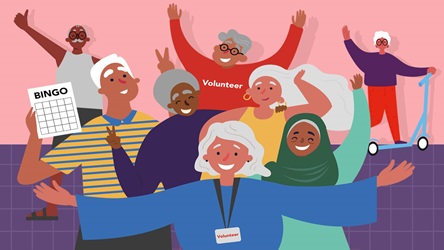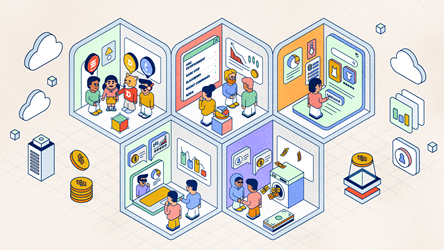Trending January 2017
A TREND TO WATCH
AI that reads your body language
Artificial intelligence, or AI, is going beyond natural language learning (think Apple’s Siri and Google Voice) to observing people’s non-verbal cues. Cars that can sense when drivers are sleepy have been around since 2014. But machine learning algorithms and deep learning abilities may one day enable cars to anticipate a driver’s actions with greater accuracy, such as when the driver is about to change lanes. One such project, called Brain4Cars, uses data from GPS, video cameras and the car’s computer system. Another area that uses body language cues is online education: Video motion tracking determines the attention and engagement level of learners from involuntary movements or fidgeting, and AIenhanced software can then adjust the pace of teaching accordingly – bringing digital learning closer to the experience of one-to-one tutoring in real life.

GLOBAL OUTLOOK
Tackling waste
Governments around the world are partnering advocacy groups, businesses and citizens to improve waste management and reduce pollution

Malaysia
Joining the states of Penang and Malacca, the governments of Johor and Perak are considering a total ban on the sale of styrofoam products and plastic bags from June 2017. This will be done in four stages, having started in June 2016 with government-building cafeterias using biodegradable containers, and government employees encouraged to bring their own reusable containers for takeaway food.
Singapore
The National Environment Agency (NEA) has several initiatives to reduce food waste. It launched an awareness campaign in end-2015, in partnership with supermarkets, food outlets, grassroots groups, schools and more. Larger hotels and shopping malls have to report their food waste amounts, and there is an ongoing two-year pilot for food waste recycling machines installed at hawker centres. The NEA is also studying the impact of food packaging – styrofoam boxes, plastic containers and the waxed brown paper used for takeaways – on the environment.
Indonesia
In 2016, the government started a trial to impose a fee on plastic bags in 23 cities and regions. In Bali, the Governor agreed to a ban on plastic bags after teenage sisters Melati and Isabel Wijsen ran a petition campaign and went on a brief hunger strike. Watch the sisters share their message on TED Talks: bit.ly/wijsenin

South Africa
The municipal authority of Cape Town has a government-created online portal that lets people connect to reuse or recycle items (e.g., furniture, tires and computers). The Integrated Waste Exchange portal allows individuals, institutions and businesses to post ads for waste products they seek. One man’s garbage is truly another man’s gold.
The UK
England introduced a 5 pence (S$0.10) charge on single-use plastic bags in October 2015. Since then, the use of plastic bags (across seven large supermarket chains) has dropped 85% (from 7 billion to slightly more than 500,000 over a year), according to The Guardian. Before this, similar schemes had taken place successfully in Wales, Scotland and Northern Ireland.
EXPLAINER
Get the C correct
How to tell Singapore Customs from the Immigration and Checkpoints Authority.

The “C” in “ICA” is sometimes mistaken for “Customs”. In fact, the Immigration and Checkpoints Authority (ICA) is separate from Singapore Customs, though they are often found working together at our checkpoints, such as the airport.
The ICA comes under the Ministry of Home Affairs, and ensures Singapore’s border security at our air, coastal, port and land checkpoints. It does so by using various technology and means such as checks on personal documents, vehicles and cargo.
Singapore Customs, on the other hand, is a department under the Ministry of Finance. It aims to make trade “easy, fair and secure”. It collects revenue (duties and taxes on goods), oversees regulations on trade, and takes enforcement action against those who do not declare controlled goods or bring in contraband items.
Did you know?

LEARN THE LINGO
Post-truth: Named the word of 2016 by Oxford Dictionaries, after the US presidential election and UK referendum on the European Union, two events where people arguably voted based on “appeals to emotion and personal belief”. E.g., “It’s a post-truth world now, so always be skeptical.”
Extra: The Singaporean way of using “extra” to describe a person’s unnecessarily over-the-top ways can now be seen on the likes of BuzzFeed and Tumblr. Use it to be sassy when someone makes things overly complicated, dresses outlandishly or has a dramatic over-reaction. E.g., “Why is he being so extra? It’s not a big deal.”
WHAT WE LOVE

DEON TOH
Assistant Manager, MCCY
Bandwagon: A one-stop shop for all information relating to indie (and more) music in Singapore. It’s an informative platform for keeping up to date with the latest happenings in the local music scene. www.bandwagon.asia
midst: A trio of instrumentally-driven electronic ambient individuals from Singapore. They recently put out their self-titled debut EP, which sounds amazing. fb.com/midstsg

ZACHARY
Senior Officer, EDB
Wally+ (iOS/Android): A free app that lets you track your income and expenses, which you can divide by category to review later. You can also set saving targets as a percentage of your income or by a fixed number.
House of Leaves: A novel by Mark Z. Danielewski that defies clear genre categorisation. There are three separate threads that each take on a different style. Even the way the words are laid out adds to the experience
- POSTED ON
Feb 24, 2017









.tmb-tmb450x250.jpg)